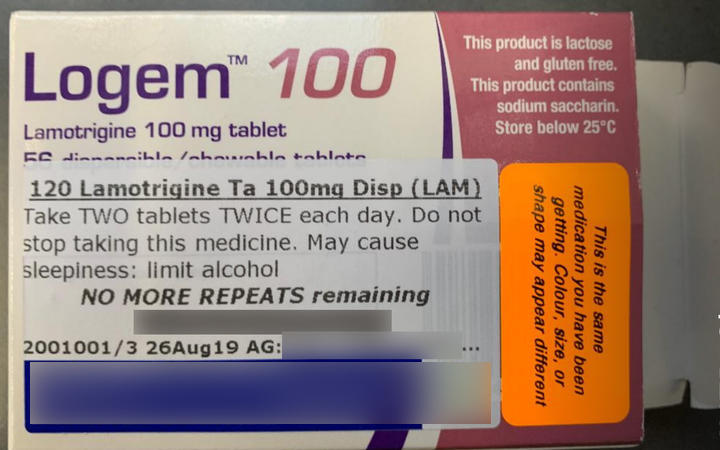A 26-year-old Dunedin man is the fourth person to die shortly after changing from a branded version of the anti-epilepsy drug lamotrigine to a generic version, Logem.
William Oliver died on August 12 this year, a few weeks after making the medication switch. He had a seizure in the back of his car - the place he liked to go and sit when he needed time to himself.
According to his LinkedIn profile, Mr Oliver was working as a kitchen hand at the University of Otago while he studied there.
Watch RNZ investigative reporter Guyon Espiner's interview with Pharmac's medical director:
Mr Oliver changed brands after` the Government's drug-buying agency Pharmac in a cost-saving move pulled funding for Arrow and Lamictal on October 1, making the country's least-favourite brand of lamotrigine, Logem, the only publicly-funded version of the drug available.
His mother, Johanna Oliver, said she was angry he had been made to switch brands.

"When I read about this Logem, it really angered me. This has happened to me, but it could have happened to anyone."
Ms Oliver said her son was having about one seizure a month, but after switching to Logem he started having seizures every week.
"He'd commented to me, 'I don't know why they're changing me to this'... And I said to him, 'why would they change something that has worked for you?'"
Ms Oliver said she spoke to the coroner today, who said her son had died from a seizure.
She reported his death to the Centre for Adverse Reactions Monitoring (CARM) earlier this week.
Three other deaths have been reported to CARM over suspicions they are connected to the medication switch, which affects about 11,000 people. The deaths have been referred to the coroner.
This afternoon, Pharmac was advised of Mr Oliver's death.
"Medsafe has very limited details on the case, and advises us that CARM is currently seeking more information from the treating physician. Pharmac will continue to liaise with Medsafe on adverse event reports and Medsafe's analysis of them," a spokesperson said.
PHARMAC BACKDOWN
Earlier in the day, Pharmac backed down on a controversial drug brand switch affecting patients with epilepsy and mental health conditions after three people died following the change.
It announced it would widen access to the Lamictal and Arrow brands of lamotrigine, via its exceptional circumstances process.
The agency's medical director Dr Ken Clark said: "We understand the news of the three deaths of patients taking Lamotrigine will concern people.
"We don't know if this is linked to the brand change - and we don't want people to stop taking their medication out of fear so we're making it easier for people to stay on their current brand if their doctor believes it is the right thing for them."
He assured Logem was safe. "I want to reassure those people who have already changed to Logem - over 8000 people - that Logem works in the same way as the other two Lamotrigine brands."

"As a neurologist, I'm slightly uncertain about whether the absorption characteristics in the different tablets are going to be exactly the same."
He said for most people there would be a 10-20% difference in absorption and that would not cause problems, but for some people who had been seizure-free but "who are just on the edge", it could be enough to lead to seizure recurrence.
Pharmac made the Logem drug switch against the advice of MedSafe, who warned it went "against international consensus on switching brands of anti-epileptic medicines".
MedSafe said the move posed "a potential significant safety issue".
It warned the brand switch "could result in the loss of seizure control" for patients trying to control epilepsy. "A single seizure can be extremely detrimental to a patient's life and all measures should be taken to ensure this risk is minimised."
MedSafe also advised Pharmac that if the agency did go ahead with the brand switch, each patient should be given an information leaflet and should first be reviewed by their GP.
GPs should then refer the most vulnerable patients for specialist intervention and for monitoring during the switch.
Pharmac rejected the idea of referring patients to specialists, and disagreed that patients should be given too much information for fear of causing "unnecessary anxiety" about the change.












